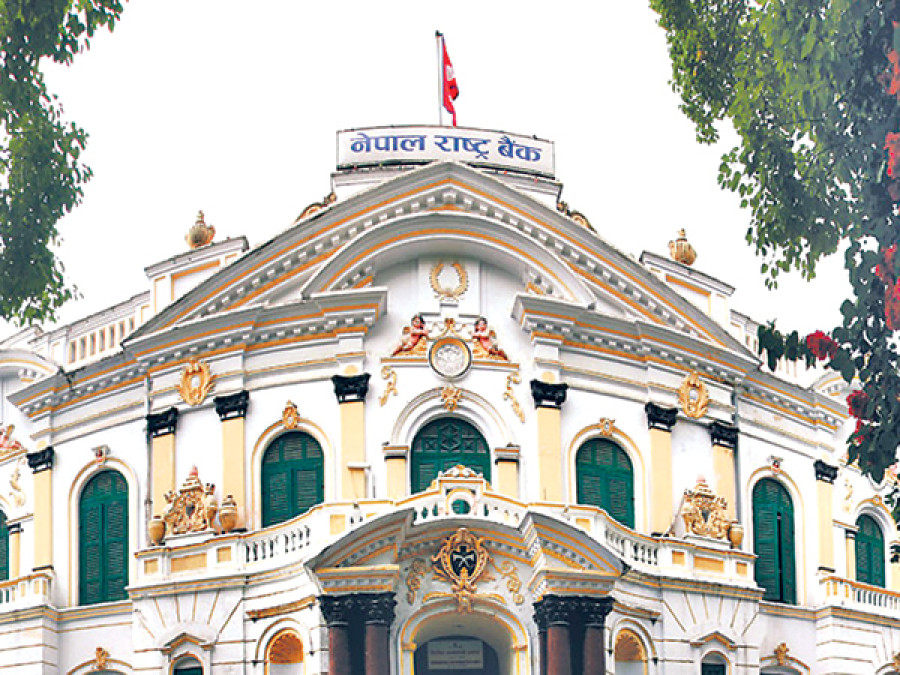Money
Questions over revised Bafia’s significance
As the bill on Banks and Financial Institutions Act (Bafia) awaits the Parliament’s endorsement, serious questions have been raised over its significance after key provisions included in initial draft to ensure good corporate governance were removed under the influence of lawmakers who are also bank promoters.
Prithvi Man Shrestha
As the bill on Banks and Financial Institutions Act (Bafia) awaits the Parliament’s endorsement, serious questions have been raised over its significance after key provisions included in initial draft to ensure good corporate governance were removed under the influence of lawmakers who are also bank promoters.
Former governors and senior officials of Nepal Rastra Bank (NRB) termed the amended bill “regressive” which could lead the banking sector to another crisis after Nepal Development Bank was sent to liquidition seven years ago.
The Parliamentary Finance Committee, which is also represented by a few chairmen of banks and financial institutions (BFIs), has sent the revised bill to the full House.
In the revised bill, provisions that limit terms of bank chairmen and directors, require NRB permission to offload a significant portion of promoter shares, restrict individuals holding constitutional posts from becoming bank directors, and separate bankers and businessmen have been removed.
“The provisions were included in the initial draft to establish a system as the directive issued by the central bank could be compromised based on political pressure,” said Former NRB Governor Dipendra Bahadur Kshetry. “If the revised bill is passed by the Parliament as it is, it will seriously undermine the central bank’s power, leading the banking sector to another disaster.”
The provision of term limits for directors, chairmen and chief executive officers was adopted given incidents in which prolonged stay resulted in executives covering up their wrongdoings.
The provision of barring individuals holding more than 50 percent share in any company from becoming bank directors was put in place to separate bankers and businessmen, given events of businessmen, who also held top BFI posts, misusing their position to take loans for themselves by creating fake borrowers and denying loans to their competitors.
Former NRB Deputy Governor Maha Prasad Adhikari said the revised bill is “regressive” as it steps back from existing provisions when it comes to ensuring a sound banking sector. He expressed fears the proposed changes on dilution of promoters’ stake to public shares might produce a good amount of gains to individual promoters, but could lead to inclusion of anybody in the bank board.
“In the name of diluting promoter shares to public, the promoters might sell a large number their shares to anybody without restriction from the central bank as per the revised bill,” said Adhikari. “If the ultimate owner of the bank is not identifiable, how could NRB be held responsible for any future consequences.”
He said it may also have severe impact on the country considering international developments related to anti-money laundering.
Experts said the passage of the bill, which is likely to create troubles in the financial sector instead of improving it, will have no meaning. They suggested that the either the concerns be addressed through the full House or the revised bill be returned to the government.
According to Bharat Raj Gautam, spokesperson for the Parliament Secretariat, the government can withdraw the bill from the Parliament by taking its approval.
“If a bill is under discussion, the speaker can decide on sending back the bill to the government after holding discussions with political parties in case the government makes a request with reasonable arguments,” he said. “In the case of a registered bill, the government can take it back by sending a request to the Parliamentary Secretariat.”
Gautam said the parliament could also send back the bill to the Parliamentary committee for reconsideration. Given the Bafia bill has already reached the full house after clause-wise discussion at the Parliamentary committee, it will be difficult to return it back to the government, according to officials. A senior official of Law Ministry told the Post the best option would be improving the bill by the Parliament itself.




 16.12°C Kathmandu
16.12°C Kathmandu













%20(1).jpg&w=300&height=200)
